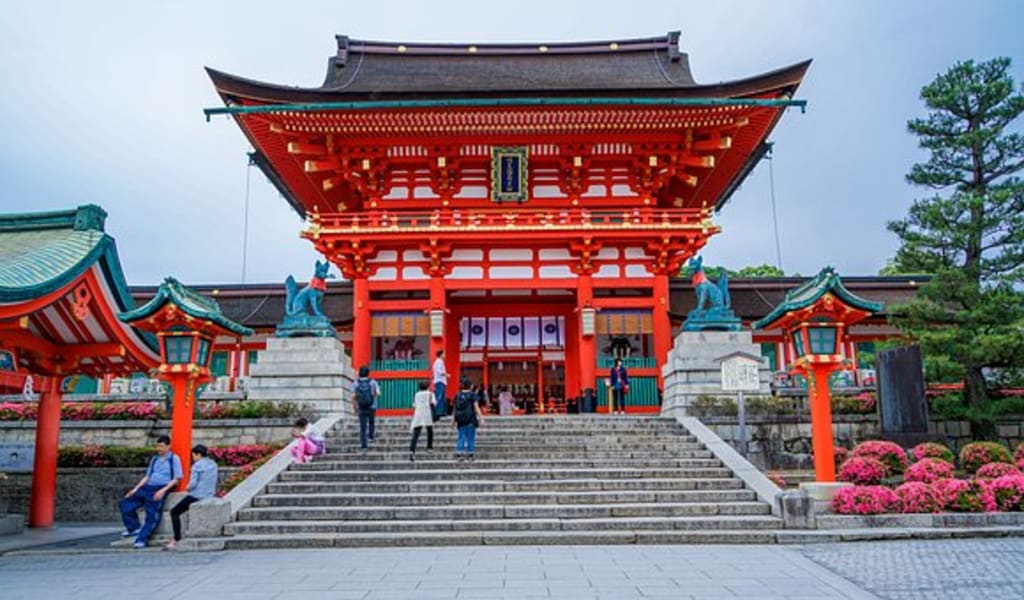Japanese concepts that will transform your life:
Lifechanging japanese concepts!

How Japanese are different compare to other people?
Japanese culture and society is unique in many ways and it's hard to make generalizations. However, some of the ways that Japanese people may be different from other cultures include:
- Respect for hierarchy and authority: Japanese society has a strong emphasis on respect for hierarchy and authority, and this can be seen in the way people interact with their superiors and elders.
- Group-oriented culture: Japan is a highly collectivistic society, which means that the needs and well-being of the group are prioritized over the needs of the individual.
- Emphasis on politeness and formality: Japanese people are known for their politeness and formality, and this can be seen in their use of honorifics and polite language.
- Strong work ethic: Japanese people are known for their strong work ethic and diligence, and this is reflected in the long working hours and high productivity in Japan.
- Cultural focus on harmony: Japanese culture places a strong emphasis on maintaining harmony and avoiding conflict, and this can be seen in the way that people interact with one another.
It's worth noting that these characteristics are not unique to Japan, and also cultures have different ways of expressing themselves. It's not fair to generalize them as a whole.
Weird habits of Japanese:
It's important to remember that what may seem "weird" or unusual to one culture may be completely normal and acceptable in another culture. That being said, here are a few habits or customs that may be considered unusual or unique to Japanese culture:
Slurping noodles loudly: In Japan, it is considered polite to slurp noodles loudly when eating, as it is believed to enhance the flavor and show appreciation for the food.
Public bathhouses: Public bathhouses, or "onsen," are a popular way for Japanese people to relax and socialize. While it may be considered unusual or uncomfortable for some people from other cultures, it is a common and accepted practice in Japan.
Preoccupation with cleanliness: Japanese people are known for their cleanliness and attention to personal hygiene. It is considered impolite to be dirty or unkempt in public, and many people carry around wet wipes or hand sanitizer to clean their hands and face.
Gift-giving culture: In Japan, it is customary to bring small gifts to others when visiting their home or when starting a new job. These gifts, known as "omiyage," are usually local specialties or snacks.
Respect for silence: Japanese people are known for their respect for silence and avoid loud or disruptive behavior in public places such as trains and buses.
Again, it's important to remember that these habits or customs may be considered unusual or unique to one culture, but they are completely normal and acceptable in another culture, so it's important to be respectful and open-minded when learning about different cultures.
There are several Japanese concepts that can transform one's life, here are a few:
Kaizen - This concept refers to the practice of continuous improvement. It encourages individuals to make small, incremental changes to improve their lives and work.
Shinto - A traditional Japanese religion that emphasizes living in harmony with nature and the world around you. It teaches to find beauty and reverence in everyday life and to focus on the present moment.
Ikigai - This concept refers to finding one's purpose in life. It encourages individuals to find balance in their lives by identifying what they love, what they are good at, what they can be paid for, and what the world needs.
Wabi-sabi - This concept refers to the beauty in imperfection and the acceptance of the natural cycle of growth and decay. It encourages individuals to find beauty in things that are not perfect and to appreciate the temporary nature of things.
Hygge - This is a Danish concept that is similar to Wabi-sabi, it refers to the practice of creating a warm and cozy atmosphere and enjoying the simple things in life. It encourages individuals to slow down and appreciate the present moment.
Hara hachi bu - This is a Confucian concept that encourages individuals to eat until they are 80% full. It is a way to be mindful of food consumption and prevent overeating.
Mokuso - This is a Zen Buddhism concept that refers to the practice of meditation. It encourages individuals to quiet their minds and focus on the present moment, helping to reduce stress and improve overall well-being.
Shikantaza - This is a Zen Buddhism concept that refers to the practice of just sitting, it is a form of meditation where one is encouraged to just sit in silence and be aware of the present moment without any expectations or goals.
It's important to note that these concepts are not a one-size-fits-all solution, it's all about finding what resonates with you and incorporating it into your life.
Suresh Natarajan
About the Creator
Suresh Natarajan
Welcome to my page where I share my love for the Bible. I am a deeply faithful person, and it brings me great joy to share the lessons I've learned through my faith. Join me as I explore biblical stories and daily prayer! Please Subscribe!






Comments
There are no comments for this story
Be the first to respond and start the conversation.